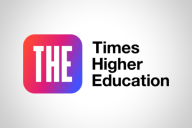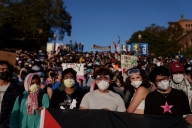You have /5 articles left.
Sign up for a free account or log in.
Purdue University president Mitch Daniels sent a universitywide message last week threatening disciplinary actions against students who allegedly threatened a student from China for speech viewed unfavorably by the Chinese government.
Daniels’s comments came in response to a recent ProPublica article reporting that a Purdue graduate student from China, Zhihao Kong, was subject to intimidation and harassment after he posted an open letter praising the heroism of students killed during the Tiananmen Square massacre in 1989. Kong told ProPublica that after he posted the letter, his parents in China received a visit from officers of the Ministry of State Security, China’s spy agency, warning him about his U.S.-based activism. Kong also said that other Chinese students at Purdue began harassing him, calling him a Central Intelligence Agency officer and threatening to report him to the Chinese Embassy and to the state security agency.
Daniels said the university was unaware at the time of the reported events and learned of them from national sources.
“Any such intimidation is unacceptable and unwelcome on our campus,” Daniels wrote. “Purdue has punished less personal, direct and threatening conduct. Anyone taking exception to the speech in question had their own right to express their disagreement, but not to engage in the actions of harassment which occurred here. If those students who issued the threats can be identified, they will be subject to appropriate disciplinary action. Likewise, any student found to have reported another student to any foreign entity for exercising their freedom of speech or belief will be subject to significant sanction.”
Daniels added, “International students are nothing new at Purdue University, which welcomed its first Asian admittees well over a century ago. We are proud that several hundred international students, nearly 200 of them Chinese, enrolled again this fall.
“But joining the Purdue community requires acceptance of its rules and values, and no value is more central to our institution or to higher education generally than the freedom of inquiry and expression. Those seeking to deny those rights to others, let alone to collude with foreign governments in repressing them, will need to pursue their education elsewhere.”








